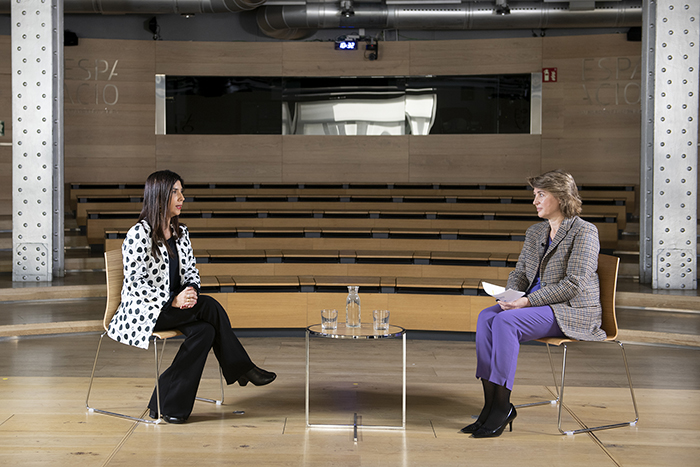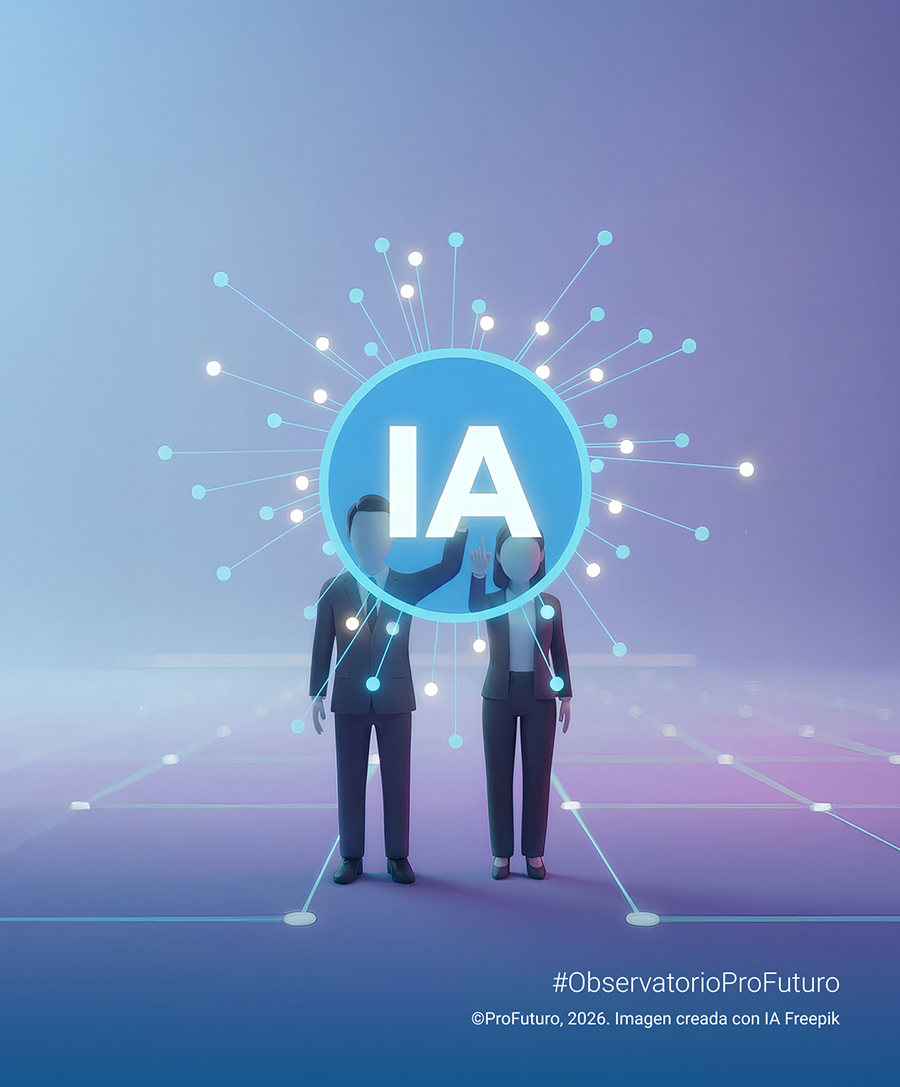“Latin America needs not to lose the momentum of recent years, where education has become a top issue on the agenda.” Public policies on innovation and digital education were the priority topics in this conversation between the Minister of Education of Colombia, María Victoria Angulo, and Managing Director of ProFuturo, Magdalena Brier. Developing a “connectivity culture”, digital skills, teacher training, assessment of digital competences and public-private partnerships have been at the heart of the dialogue. We summarise it in this post, but we recommend you watch the full interview.
According to data from Centro de Información para la Mejora de los Aprendizajes del BIDin the Latin America and the Caribbean region, 23% of households do not have access to any type of Internet and 36% of households lack access to computers. Furthermore, according to data from the latest OECD TALIS survey (Teaching and Learning International Survey), between 36% and 79% of teachers are demanding more information on digital skills. While the pandemic has highlighted access problems, Internet connection and learning quality in LAC, it also presents a great opportunity. The appearance of COVID-19, the closure of schools and the abrupt incorporation of new technologies into the education world has put education at the centre of the debate and on the political agenda of the vast majority of Latin American governments. What are the priority issues on the education agenda in the region? Minister María Victoria Angulo referred to some of them.
THE DEVELOPMENT OF DIGITAL SKILLS AND THE CONNECTIVITY CULTURE
“Awareness of digital skills development is no longer an ancillary issue for Latin America. Now is the time to make it a priority.” The countries of the region must commit to digital education as a lever for change to reduce inequalities and the educational gaps that prevent the most vulnerable from accessing quality education. This requires the development of a connectivity culture, which implies not only extending Internet connection to all those areas that currently lack it, but also preparing and training all educational agents to understand all the possibilities it implies.
TEACHER TRAINING
“We need teachers who incorporate technology into their daily work.” But this incorporation must go much further. It has to serve to connect “with empathy”, to build networks, peer networks, tutoring networks, which enhance the magic that teachers provide in their classes, making them more enjoyable and fun.
ASSES TO MOVE FORWARD
“Teacher assessment tools can play a key role in aligning teacher training provision with teachers’ needs.” The aim is to asses in order to make progress in the accompaniment and strengthening processes.
PUBLIC-PRIVATE PARTNERSHIP
“When you call for education to be a commitment of a whole country, you cannot think only of the public sector.” The alliance with private sector participants is key because in addition to the public sector general investment and guidelines, they add their expertise, the experience they bring from their investment in innovation and their resources. Private participants offer the public administration a set of proven, evidence-based projects to amplify public policy”.
For more information, you can access the full interview on our YouTube channel.






